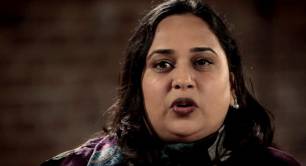How social enterprise is challenging homophobia in Brazil
A UK-based social enterprise is raising the socio-economic opportunities of LGBT people in Brazil by facilitating entrepreneurship.
A report published by Micro Rainbow International (MRI) has shown that entrepreneurship can lead to increased inclusion and empowerment. The report profiles 11 people who have benefited from one of the world’s first entrepreneurship courses designed exclusively for LGBT people.
MRI is a UK-based social enterprise fighting poverty and discrimination within the lesbian, gay, bisexual, trans and intersex (LGBTI) community.
The organisation ran employability and entrepreneurship courses in Rio de Janeiro during the period 2015-17 to help solve the lack of employment opportunities for LGBT people, who are often discriminated against.
The situation in Brazil is particularly dire: according to data supplied by the NGO Grupo Gay da Bahia, at least one LGBT person is murdered every 28 hours in the country. Nearly 1,600 people have died as a result of hate-motivated attacks in the past five years.
The report, LGBT Entrepreneurship, was published just as the cancellation of Pride Uganda was announced. Ugandan police had granted permission for Pride celebrations in 2014, but the event has been banned by the government for two consecutive years.
This month, the state minister for ethics and integrity suppressed Pride events on the grounds that organisers were unlawfully promoting homosexuality.
Legal recognition in Brazil of same-sex unions for immigration purposes has not been met with material improvements. An Amnesty International Annual Report for 2016-17 highlighted the ongoing need for better protection against violence and discrimination for LGBT people in South America.
Brazil’s culture of machismo and evangelicalism are cited by MRI as important factors in the high instance of crime against members of the LGBT community, many of whom live in destitution.
In this regard, the UK does not fare much better: a 2013 MRI report showed that, of a sample of 50 lesbian and gay refugees, at least 74% were living below the poverty line (defined as £168 per week for a single person, before housing costs).
In Brazil, MRI ran courses for 164 LGBT people in employability and/or entrepreneurship. Despite the loss of 37 participants due to a need for more immediate employment, 53 of those who completed the entrepreneurship course opened or expanded their small businesses.
One participant, Laylah, secured new jobs after completing the entrepreneurship course, including coordinating the makeup team at the 2016 Rio Olympics.
Having experienced transphobia, she advocates financial autonomy as essential for improving trans-women’s lives: “I did not see myself as an entrepreneur, I thought I was a survivor,” she says. “You need to have the courage to break with the role that society determines for trans-women.”
The project was funded for a three year period by the EU, and was partnered with the European Instrument for Democracy and Human Rights and the Grupo Arco-Íris de Cidadania LGBT, as well as other local organisations.
MRI also supplied free training for private companies in order to educate them about the barriers to employment faced by many LGBT people. 23 institutions received this training, which included recommendations for more inclusive corporate policies.
Photo credit: Micro Rainbow International



![[file:field_file_image_alt_text]](https://www.pioneerspost.com/sites/default/files/styles/node-teaser/public/images/article/Cambodian%20water%20purifier%20photo.jpg?itok=cLrMirLM)